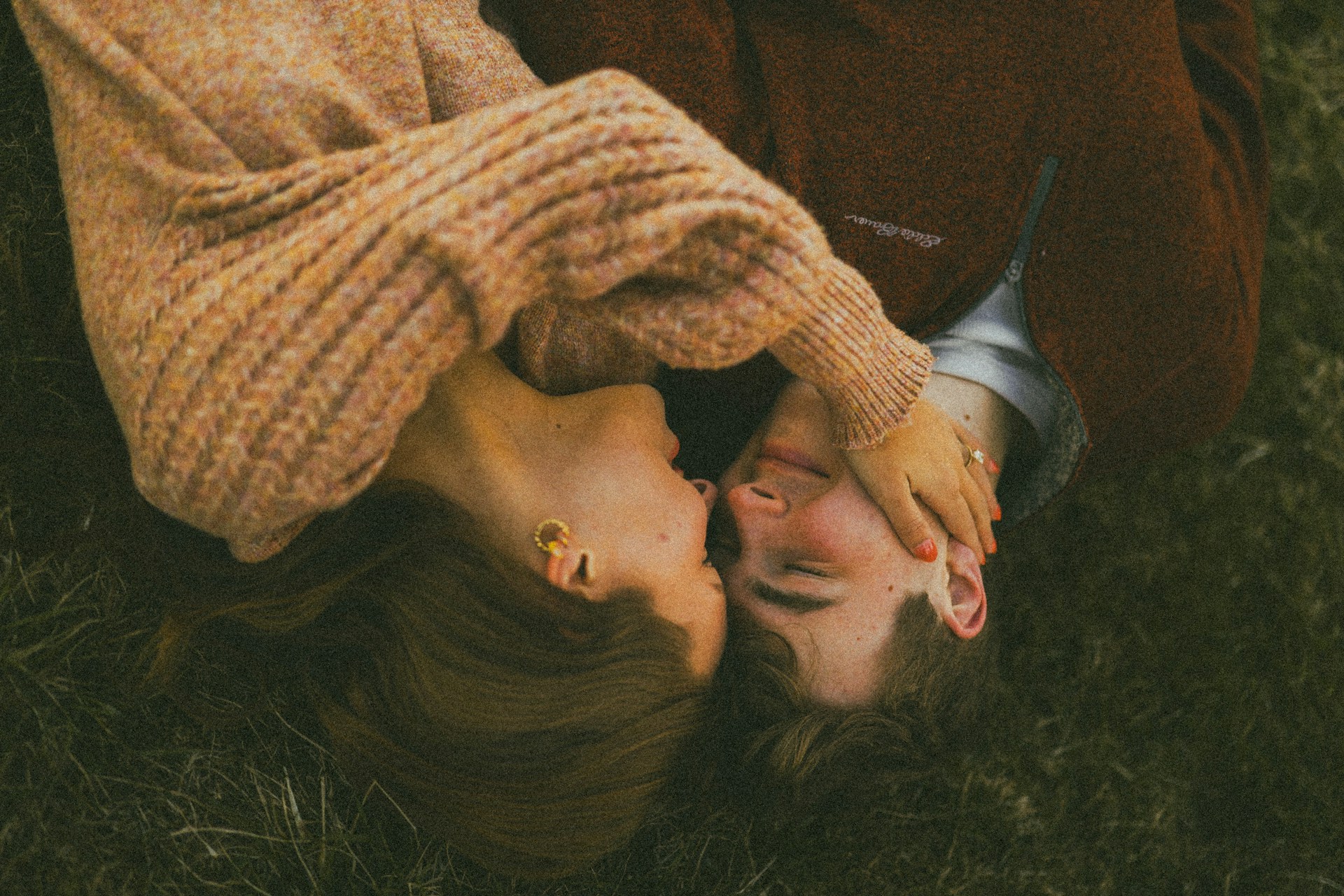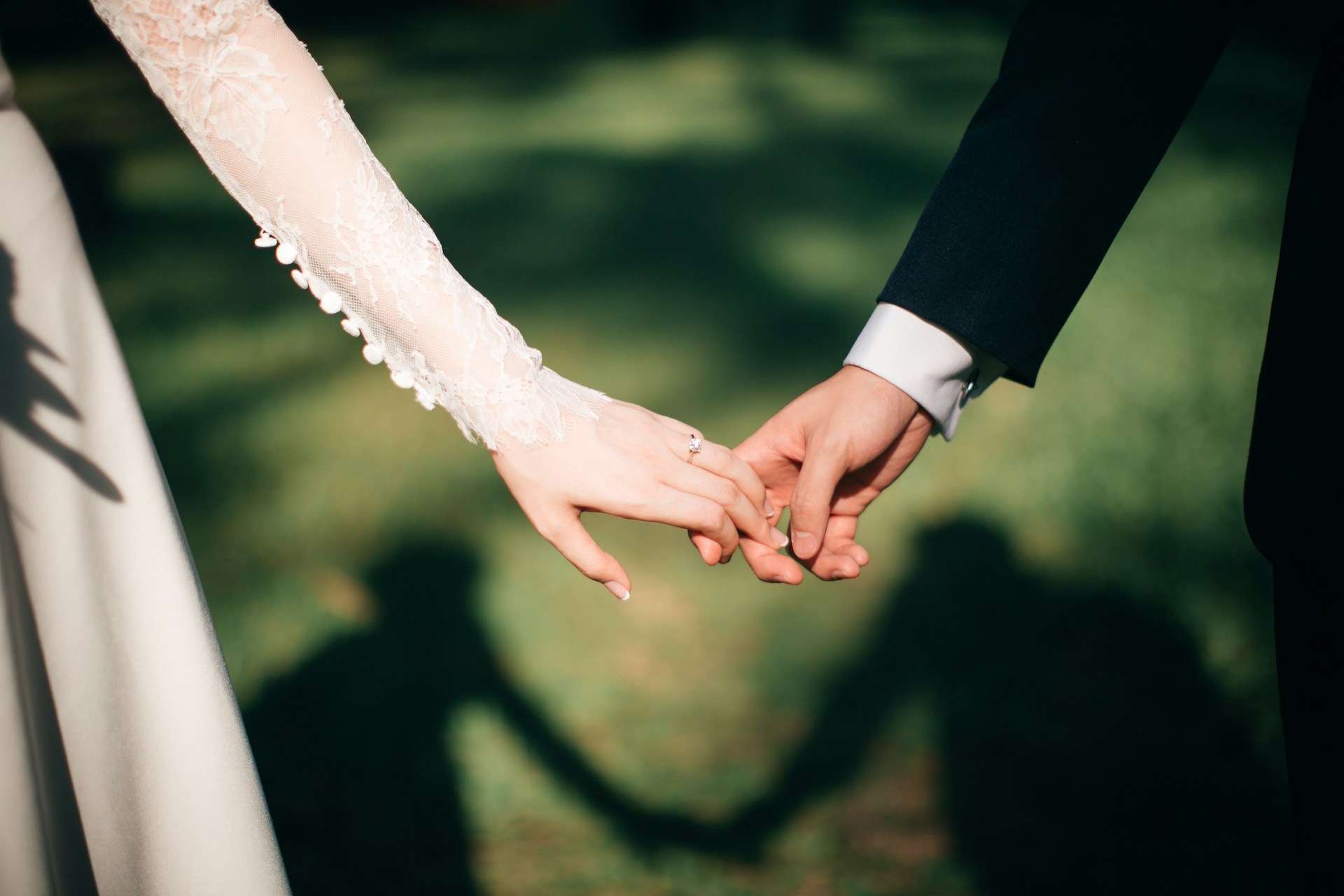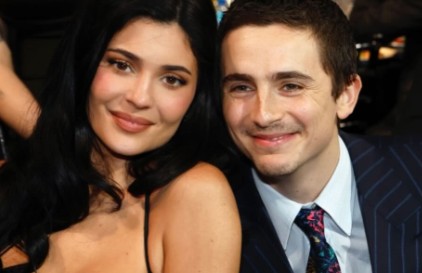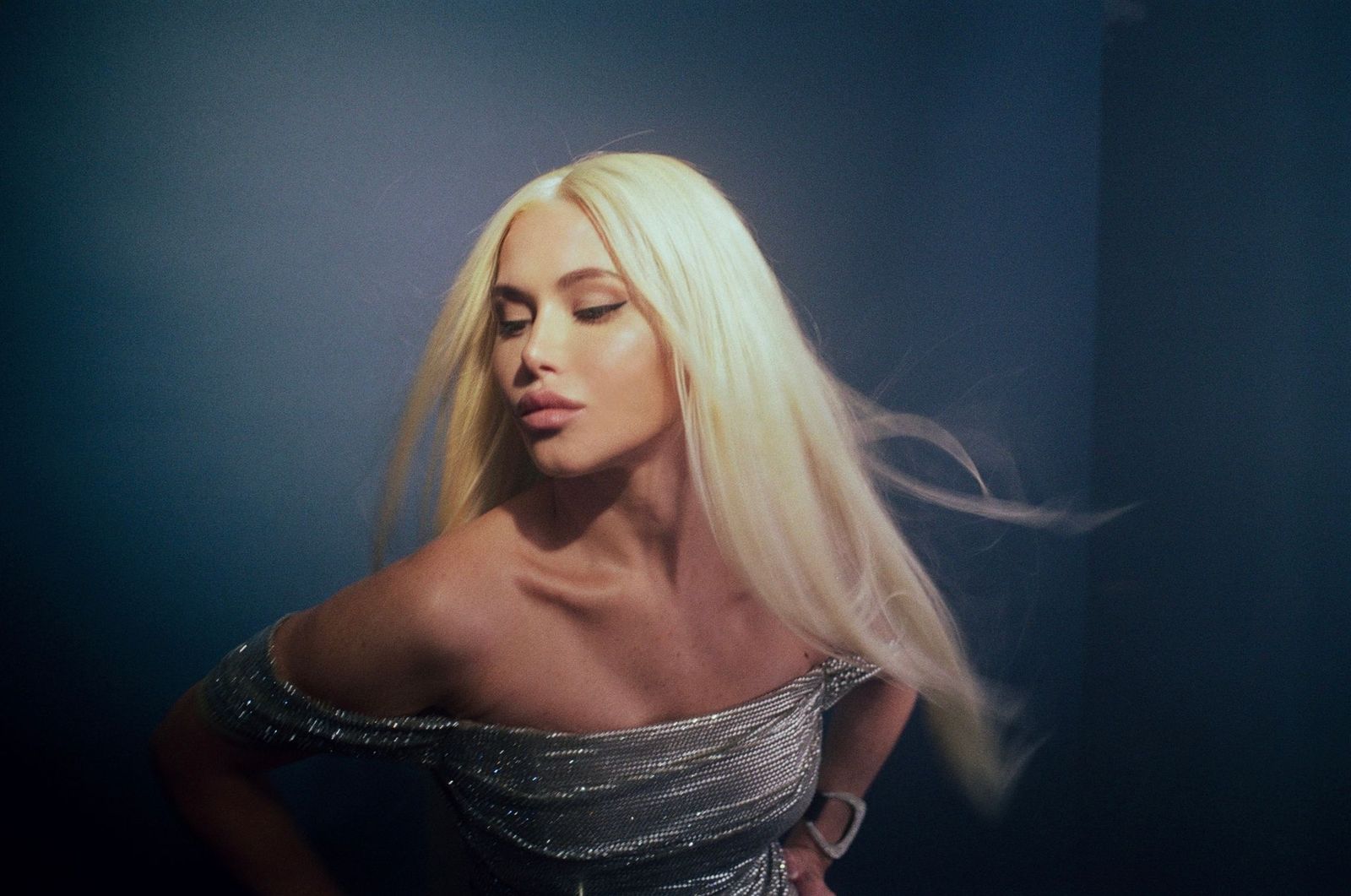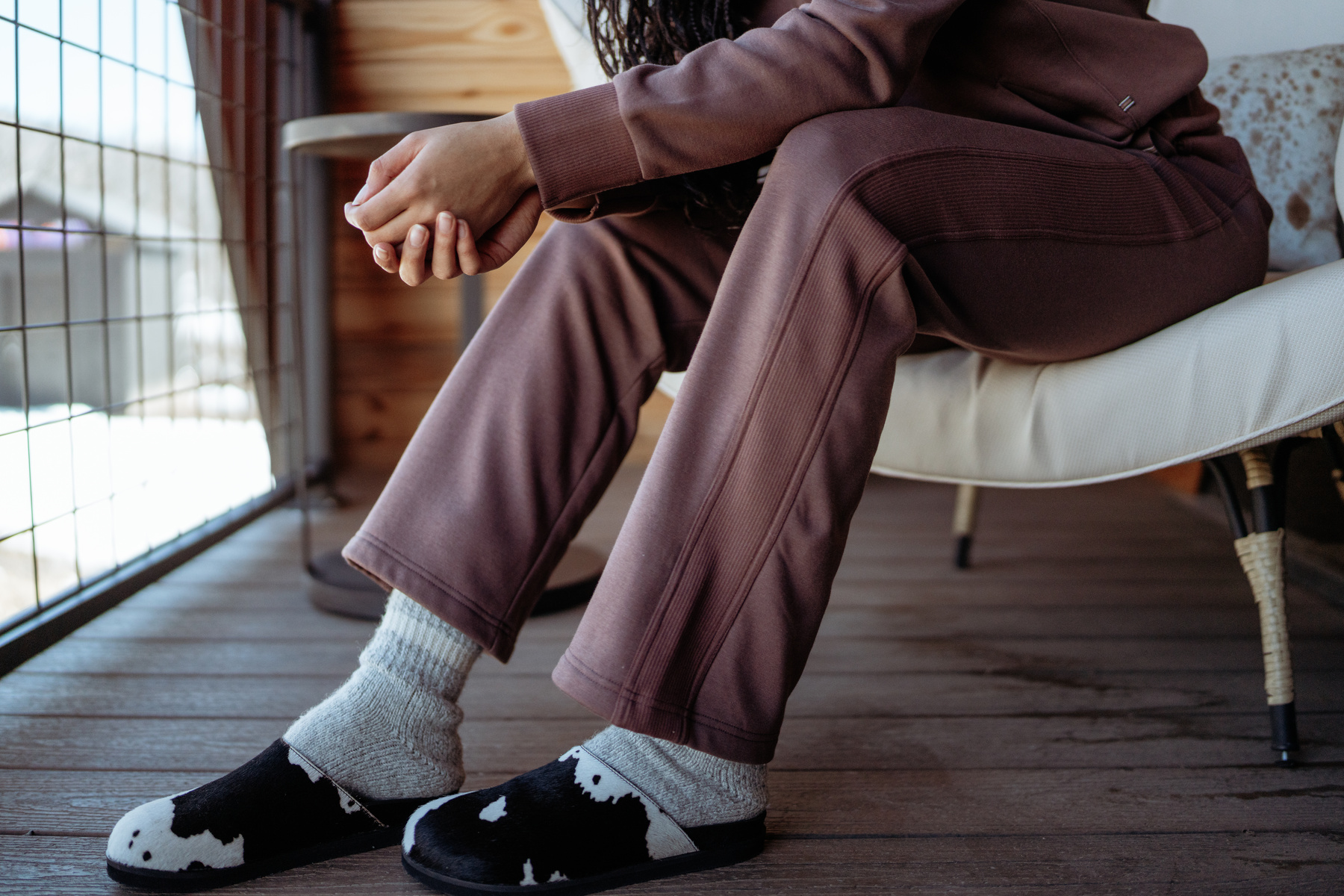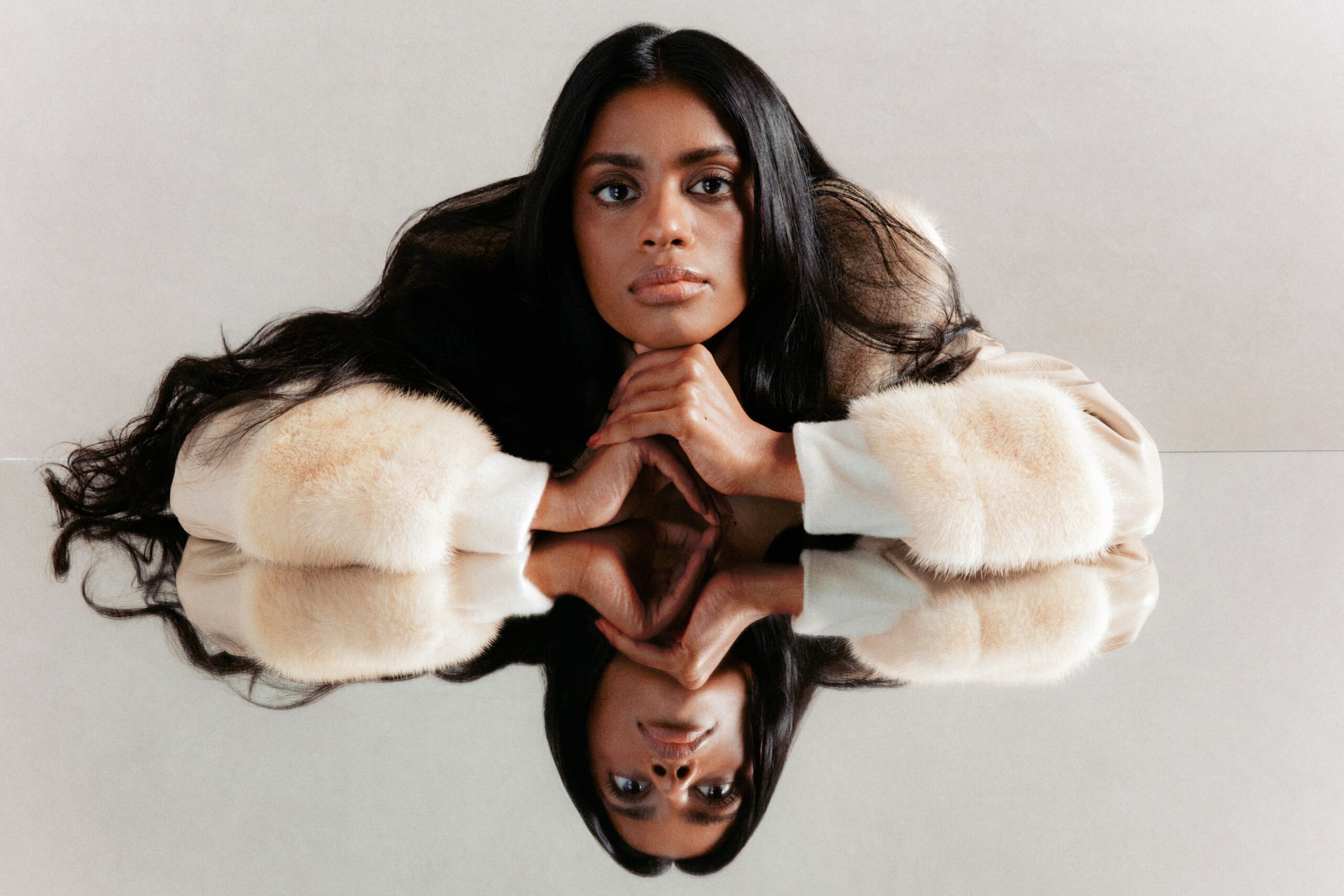
Debbii Dawson
isstudio
For her second EP, Debbie Dawson set herself a just about impossible task: figure out how to be human. Yet, the result, How To Be Human, doesn’t purport to have all the answers. Instead, it offers scenes and sentiments of a person simply trying to live in the world — torn between the comfort of solitude and the call of the unpredictable outside world.
One of her major inspirations for the album is Emily Dickinson, she tells me. After grappling with her own reclusive tendencies, Dawson dug into Dickinson’s life and work. In the end, she has resolved not to end up like Dickinson. So she leaned away from her desire to isolate and into her need to create. And we, the audience. are so lucky to reap the benefits.
How To Be Human follows her 2023 debut EP, Learning, a folk-tinged proclamation of her utterly unique singer-songwriter voice. The songs convey the stumbling first-steps of establishing one’s own personhood, filled with musings that are raw and never pedantic. Although the title was exploratory the songs hold clear truths about lessons learned. Dawson’s wisdom is inherited from legendary country songwriters like Johnny Cash and Patsy Cline while her ear for melody was honed by hymns and sharpened by classical music. The result is 70s-inspired folk-pop with songs fit for a cinescape. They’re songs of yearning, but also songs for dancing around your bedroom just to remind you that you’re alive.
Her eclectic influences get even more surprising as she tells me about her writing process — sometimes humming over dishes, sometimes inspired by art she’s consuming. Yes, the Dickinson, but also movies like Shrek. You’ve heard of a wall of sound? Dawson combines her unique musical background, diverse influences, and personal identities to create a tapestry of sound that cocoons its listener and welcomes them into her world.
How To Be Human doesn’t feel like a departure from Learning but a continuation, filled with the frenetic energy of someone who’s been still too long and is yearning for a life beyond their bubble. It’s the pressure, the build-up of energy before the release — which I hope we’ll get to experience in Dawson’s next project.
It’s thanks to this new energy, which manifests in disco-tinged production and anthemic synths, that we see a different side of Dawson as a vocalist, producer, and artist. The lyrics retain their tight intimacy but this nascent sound rattles alongside Dawson’s vibrato in satisfying chord progressions and soaring melodies.
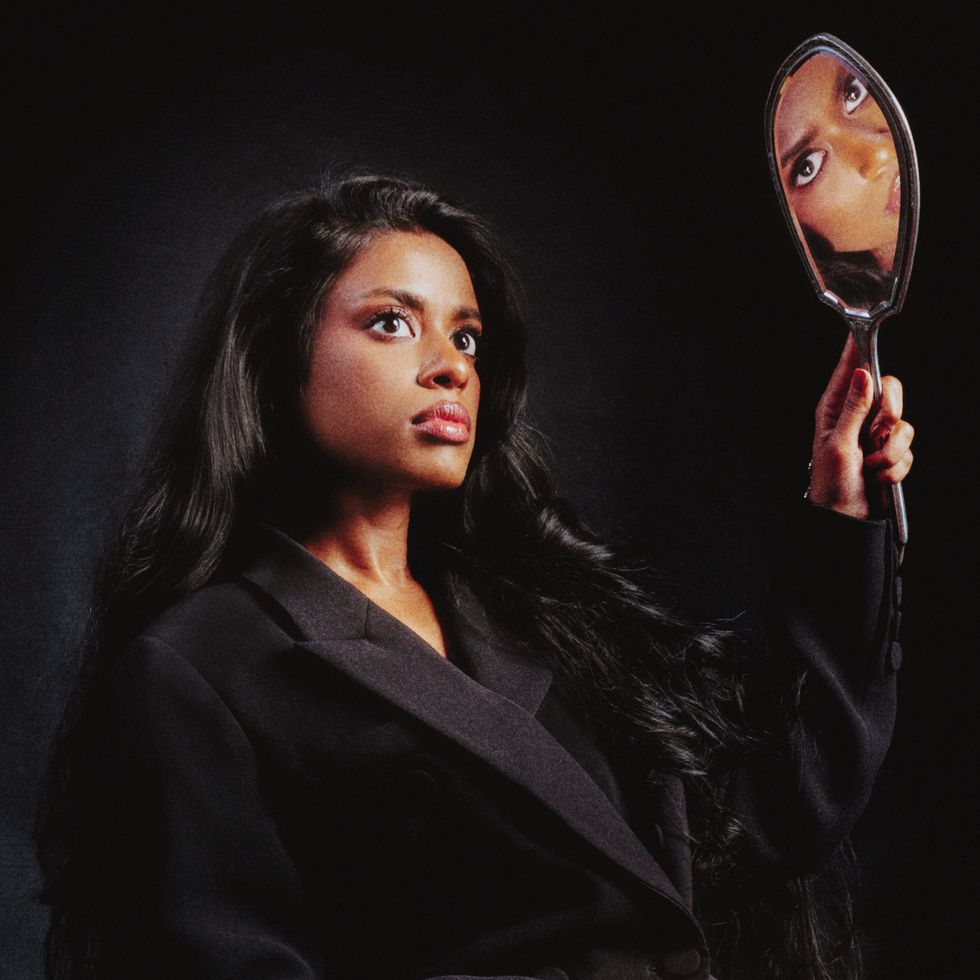 Debbii DawsonRCA
Debbii DawsonRCA
When Dawson speaks, her answers come like her lyrics: concise and precise, but not at the expense of vulnerability. She reflects on themes like solitude, belonging, and multiplicity in her life and her music with specificity and universality. She doesn’t fall into cliches — she’s currently listening to Chinese classical music in her spare time, so nothing about her is run-of-the-mill — while also speaking to themes of connection and relatability.
Her groundedness is part of what makes her compelling as an artist, despite her success. She signed to RCA Records in April, joined Orville Peck on part of his Stampede North American Tour, and is slated for festival dates and a slot supporting Suki Waterhouse in September.
Dawson let us in to talk about her EPs, her recent collaboration with Orville Peck, and what’s coming next.
POPDUST: First of all, congrats on the new EP. How are you feeling about it being out in the world?
Debbii Dawson: I’m relieved to have it off my hands. I started some of them, like, a year ago, some of them at the same time as the last EP was being written. It was just about deciding what stories I wanted to tell when. And the sound, too.
POPDUST: The sound really shifts from the first EP to this one. Learning was more folk-inspired, but How To Be Human sounds like ABBA meets Kasey Musgraves. Can you talk through the choices that you were making on both and why you gravitated to this new sound?
Debbii Dawson: When I was trying to find my sound when I first started doing music, I thought I had to pick one lane so as not to confuse people. A lot of that was me actually trying to come to terms with my own identity. And until I did that, the sound didn’t come. So I had to be comfortable being a person in multiple worlds — being a first generation American, being a person of color, growing up in a white town. I had a lot of things to deal with internally. Once I accepted that, the sound came and I realized I didn’t have to pick parts of myself. I could do more than one thing at a time and people would be fine with it.
POPDUST: How did those different parts of your identity impact you as a musician?
Debbii Dawson: Being South Asian, I had a different cultural upbringing and realities than my peers, so my version of what it means to be an American looks different from someone else. Even with other South Asians, it varies so much between us. Musically, I also had so many influences. I grew up with old country music like Johnny Cash and Patsy Cline because that’s the western music my parents, who are immigrants, had access to. And then I grew up listening to a lot of hymns and classical music. And I think you can hear all of those present in the stuff I make. And, of course, older songs like ABBA and later, QUEEN, and really amazing musicians really resonated with me.
POPDUST: When did you start picking out the music that you were listening to, and what were you gravitating to?
Debbii Dawson: I had more of a religious upbringing, so I wasn’t exposed to music a lot of other kids my age were. So I started listening to music for myself probably in middle school. I listened to Coldplay for the first time, and John Lennon, and a lot of Muse. And because I loved classical music too, it was really cool how these people could take from their influences, like blues influences — and I know Coldplay had a lot of influence from hymns as well — and see them make something palatable for people.
POPDUST: In the first EP, it feels like you’re on the outside looking in, but then the second EP is trying to bring in everyone else on the inside. What themes do you gravitate to when you write?
Debbii Dawson: These EPs were really inspired by my own story and by Emily Dickinson, actually. She’s an American poet, who was a recluse and wrote all these amazing pieces of poetry and wasn’t published until after she died. I also have very reclusive tendencies. There was a period of time in my life where I kind of just retreated from the world and was kind of over it, and didn’t leave home for a while — and this is all pre-pandemic. Around this time I started writing as well and reading Emily Dickinson’s poems, and thinking about her life. I was like, I don’t know if I want to end up the way she did. So I decided I could change the ending if I wanted to, so her story really inspired me. So yeah, the last two EPs are written from the perspective of a recluse, and, like you mentioned, from the outside looking in, and also from the inside looking out, and maybe reasons that led that person to that place, and reasons for leaving and trying to change their situation.
POPDUST: What drew you to songwriting?
Debbii Dawson: I wrote poetry when I was a child. I didn’t start writing songs seriously until maybe eight years ago. I’m not the most expressive person, so it was a way for me to process thoughts and feelings privately. Then it just turned into this thing and I’ve been working on it since. It can be really scary. Songwriting is really therapeutic, but when it’s done publicly, it’s a little invasive. So it’s kind of scary. For me personally, it’s something I feel like I have to do. I have to get it off my chest. Like I said, I’m not the most expressive person, and so this is the only way I know how to do it. It’s really helpful, getting messages from people who listen to my music saying how much it impacts them, too. knowing I can write some words down and have an impact on someone is really, really special.
POPDUST: I’m sure your songwriting has changed in the past eight years, but do you think that it’s changed in the past few years between the two EPs?
Debbii Dawson: How To Be Human was done over a period of about a year, so it was a longer amount of time. I think “Solitude” and “Eulogy for Nobody” were written the same day. I wrote “Eulogy for Nobody” — super depressing song — on my floor in my room, and brought that into a session I had a couple of days later. I didn’t know if I wanted to work on that one or “Solitude,” which I had the riff for. And people I was with were like, Let’s do both.
And this one, I produced. I did production on a song last time, but it’s just a guitar. But this one, I did a little bit more intense production, so it was fun to kind of dive into that. And I started “Solitude” last year, but up until a couple days before I turned it in, I was tweaking and adding arrangements at the very last minute. So it was a very fluid process. My collaborators are great, open minded people, creative people like super fun to work with.
POPDUST: How have the people you’ve collaborated with and worked with stretched you or challenged your own instincts?
Debbii Dawson: They’re so good at what they do. I love that they make me feel comfortable to create, which is super important in the creative process. I think I can be a perfectionist and they help me realize things don’t need to be perfect. There’s a good perfectionism and bad perfectionism. And they’re helping me with that. And then it’s always really refreshing to hear other perspectives and other angles on how people approach things.
During the first EP, I was also more timid in rooms. I would go into the studio and maybe there’s a couple of other people in there too, and I was more shy. It takes me a minute to warm up to strangers, and so I’m still working on it, but I’m more comfortable being vocal about what I want to say, how I want to say it, if I don’t like something. Having more confidence this time around, made all the difference.
POPDUST: You collaborated with Orville Peck for his album Stampede. How does collaboration impact sound when you’re blending your sound and your style with someone else’s?
Debbii Dawson: With Orville, we wrote the song together. Before going into the studio to write with him, I was thinking about what through lines we had. He’s this amazing, fabulous cowboy. And I love the older country songs I mentioned, so those old country duets seemed like such a great connection. Finding the connectors between both of us, I think, allows two different people to still authentically be themselves, without one having to change the other. And I got to do a little tour with him which was so great. His fans are so welcoming and warm.
Listen to “Back At Your Door” by Orville Peck and Debbii Dawson here:
POPDUST: Connecting to people and connecting to fans is so special. How do you keep that alive on stage?
Debbii Dawson: It’s a different connection. I was super shy. I didn’t know if I could perform live. I wanted to throw up thinking about it, but I remember doing my first show last year and realizing that I really loved it, and it was different when people are connecting with the music. It’s not about me standing and having people look at me — it’s about what I’m bringing to them. It’s like, here look at this thing. So it’s been nice to connect with people in that way. It’s not me and listeners connecting, but me, the listeners, and the music. So it’s less scary.
POPDUST: So you’ve built this community. Was there any sort of trepidation about releasing this new EP with a new sound, about how people would receive it?
Debbii Dawson: Yeah, that’s always there. I want people to like my music but you never know. But I also make music because I get uncomfortable if I don’t do it. So there’s always a hope that as long as it’s true to who I am — and if anyone else makes music, if it’s true to who you are — it’ll be easier to accept if it’s new.
POPDUST: What goes into putting together each EP and deciding on the direction it goes?
Debbii Dawson: I try to be cohesive. I can be a little chaotic and scattered, so I try my best to find the through line of things. I’m also a really big gut feeling person, so I try to lean into that as well. I really value the wisdom of my peers and my team. So I’ll pick people’s brains and then sit by myself for a while and chew on it. But sometimes it’s so random. Like “Happy World” was actually super inspired by Shrek.
POPDUST: No way. The “Holding Out for a Hero” in Shrek 2?
Debbii Dawson: No, it was when Shrek and Donkey enter Duloc and those puppets are singing the “Welcome to Duloc” song. I wanted to write a song that felt like that. Like it’s this perfect place, but something’s not quite right here. So you never know where it’s coming from.
POPDUST: Do you have any favorite songs of all the music you’ve worked on?
Debbii Dawson: I love “Happy World.” That was so fun to make. “Downer” was also really fun to make. I remember we all couldn’t stop smiling when we were recording that in the studio. “Solitude,” too is just a super fun song. Yeah, so many favorite children.
POPDUST: It’s a good sign, when it’s impossible to pick. What do you hope people take from this EP — and from your music in general?
Debbii Dawson: I hope that when people listen to my music, they know that they’re not alone and what they’re feeling or experiencing — or if they were people like me who grew up in a marginalized community — that they feel like they have somewhere to belong. And I hope that it stretches them creatively, and they know that anything is possible.That there’s no limits to what they want to create and how they want to do it.
POPDUST: You said you’re writing. What’s coming next? What can we expect down the line?
Debbii Dawson: I like to keep people on their toes. I think you can expect, without saying too much, more color. Yeah, more color.

